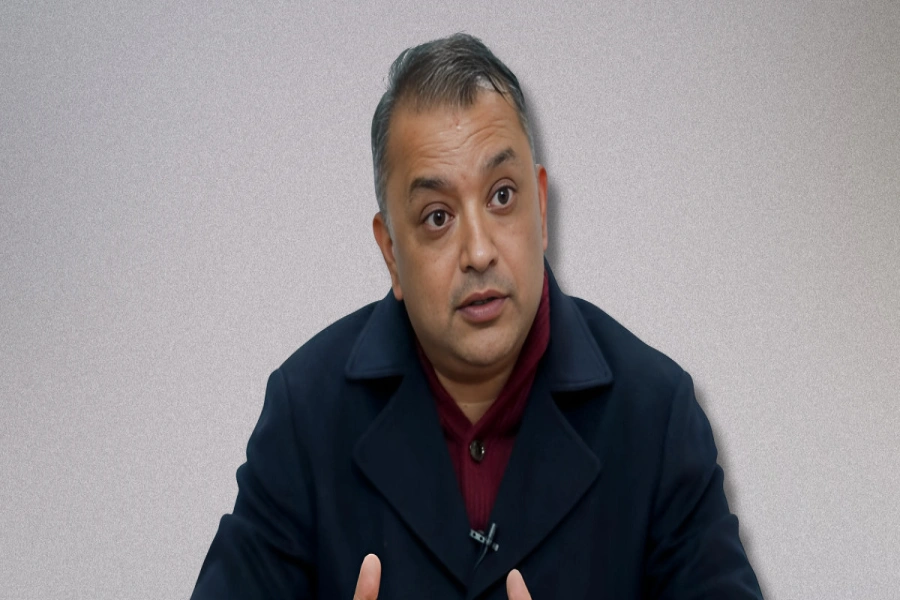There are many people, even inside the Kathmandu valley, who aren’t aware of how disabling mental disorders can be.
Pushpa KC* was 20 years old when he dropped out from college and started living on the streets of Delhi. The cacophony of voices in his head didn’t let him concentrate on anything and the hallucinations became so bad that he didn’t know what was real and what wasn’t. He lost touch with his family and friends and didn’t know how he ended up friendless, in tatters, and without a place to call home.
After his brother found him and brought him home, four years after KC had been living on the streets, Dr Arun Kunwar, MD in Adult Psychiatry (USA) and Consultant Child and Adolescent Psychiatry, diagnosed him with schizophrenia. For a person to be diagnosed with this disorder their symptoms must have lasted for about six months, and KC had already lived with it for years.
“Many people in the country tend to seek help from the local apothecaries and the dhamis and jhakris for they think the person has just been possessed by god and that it’s a phase and it’ll pass soon,” says Dr Kunwar adding that this misconception leads to a lot of people missing out on proper diagnosis in our country. According to him, there is no home remedy for this and it is necessary to bring people with schizophrenia to the doctor.
Schizophrenia is a mental disorder, characterized by delusions, hallucinations, disorganized speech and behavior, and other symptoms that cause social or occupational dysfunction and remains among the top 10 disabling conditions worldwide for young adults. Dr Kunwar says that schizophrenia affects a person’s ability to function on a daily basis. There are so many hallucinations and suspicions that only a couple out of a hundred can live normally.
“It’s a chronic, non-communicable disease and has to be approached with the idea that we need to manage it for life. Although no national study has been conducted in Nepal, it generally affects one percent of the population,” says Dr Kunwar.
According to Dr Pratap Poudel, psychiatrist at the Mental Hospital in Langankhel, out of the 47 beds at the hospital, there is always at least one schizophrenia patient. Most of the patients who come to the hospital exhibit positive symptoms which include hallucination which can be visual or auditory, delusions which are beliefs that may seem strange to other people, disorganized speech where effective communication can be impaired, and answers to questions may be partially or completely unrelated.
However, Dr Poudel says that there are occasional patients who come with negative symptoms. These negative symptoms include problems with motivation, social interactions, affective experience and responsiveness, clarity of speech, and slowed movement. Negative symptoms contribute more to poor functional outcomes and quality of life for individuals with schizophrenia than the positive symptoms.
But even though it is a chronic, lifelong problem, there are chances of recovery. There might, however, be need for the patients to be under medication for the rest of their lives as non compliance to medication can cause a relapse. Medications are the cornerstone of treatment for schizophrenia and the most commonly prescribed drugs are antipsychotic drugs. They are thought to control the symptoms by affecting the brain’s neurotransmitter, dopamine.
After having finally started his treatment with Dr Kunwar, KC showed remarkable improvement. Upon non compliance of his medications he had a short relapse where his symptoms started acting up again. When he started hallucinating again, he went back on his medication and is now living a normal life. Dr. Kunwar proudly talks about how he is now the head chef at a restaurant and is raising a family of his own.
“The goal of treatment with antipsychotic medications is to effectively manage signs and symptoms at the lowest possible dose. We try different drugs, different doses or combinations over time to achieve the desired result,” explains Dr Kunwar. Other medications also might help, such as antidepressants or anti-anxiety drugs, but it can take several weeks for the symptoms to lessen.
However, due to the serious side effects that the medications for schizophrenia can cause, some people are reluctant to take them. The willingness to cooperate with the treatment might affect the drug choice for the patient. If they are likely to not comply with their medication, they may need to be given injections instead of oral medications. Dr Kunwar says that about 60 to 70 percent of people can go back to living a fully functional life after getting correct treatment.
That having been said, he emphasizes that though a person may have schizophrenia, if they aren’t hurting the society or themselves they may not need to undergo treatment at all. “If their daily life isn’t impaired and them having schizophrenia doesn’t affect anyone in anyway then there is no reason to undergo treatments and deal with the side effects of the medication which include muscle spasms, hand tremors, and even Parkinsonian syndromes. Though the new medications available have lesser side-effects, they affect the body’s metabolism and thus patients need to go in for regular metabolic follow-ups.
And where medication can’t help, support can be of paramount importance. People with schizophrenia can sometimes be violent or react violently to some situations. Family members should be aware of this and be patient enough to react accordingly. “Sometimes when the delusions and hallucinations act up, they aren’t completely themselves and this is when they need their families to be unfailingly supportive,” explains Dr Kunwar.
An example of how a supportive family can help turn a person’s life around is the story of Nirmal Karki*, in his twenties, who dropped out of his engineering course when he couldn’t concentrate on his classes due to his delusions which would act up whenever he sat down to study. However, with the understanding and unwavering support of his family, he now holds a permanent job as a teacher and is satisfied with how his life has tuned out as compared to how it could have been.
Countries like the USA and Canada have schizophrenia societies that offer programs and services across the county to support, educate, engage and empower individuals, families and communities impacted by schizophrenia and psychotic illness and to improve the quality of life for those affected by schizophrenia and psychosis through education, support programs, public policy and research. Societies like this not only just help raise awareness of how crippling mental health disorders can be but also help uplift the quality of life for those who suffer from it.
Rajiv Pokhreal, speaking for the Ministry of Health, said that they do have a mental health policy and have also created a unit to revise it. For the pilot phase, the ministry is teaming up with several organizations to raise awareness in the rural areas of the country. “We don’t have a separate budget allotted to mental health. It gets integrated with everything else. There are currently five types of drugs related to mental health that we provide for free to those in need.”
“There is definitely room for the government to step up and be more involved in the area of mental health,” says Dr Poudel who also mentioned that having a schizophrenic patient in the ward can cost quite a lot. If the government takes action and includes mental health as one of its priorities, the patients could be looked after much better.
The authorities agree that there needs to be a change in the government’s efforts to improve the framework for mental health in Nepal. There are many people, even inside the Kathmandu valley, who aren’t aware of how disabling mental disorders can be. The society still stigmatizes people with these disorders and that forces people to hide either their own symptoms, or the symptoms of a family member and leaves them hoping that it’s a phase which will pass away.
(*names changed)
No limitation to beauty

upadhyay.isha12@gmail.com







































